Whether you're a traveler, an ex-pat, or a curious local, knowing the cost of everyday items like Coca-Cola is essential. Ethiopia, with its rich culture and evolving market, presents an interesting case for beverage pricing.
In this guide, we'll break down the prices of Coca-Cola in various settings throughout the country, highlighting the unique factors that can affect these costs. From local shops to high-end restaurants, here's what you need to know about buying Coke in Ethiopia.
- Local Shop Prices
- Restaurant and Cafe Costs
- Convenience Store Availability
- Factors Influencing Price
- Comparison with Other Countries
- Practical Tips for Buying Coke in Ethiopia
Local Shop Prices
For anyone living in or visiting Ethiopia, local shops are often the go-to destination for daily essentials, including beverages like Coca-Cola. A standard 500 ml bottle of Coca-Cola in these shops typically costs around 20 Ethiopian birr ($0.40 USD) as of 2024. It's quite affordable, especially when you think about the economic contrast between Ethiopia and more developed countries where similar drinks may cost significantly more.
The price can slightly vary depending on the neighborhood and the city. For example, in Addis Ababa, you might find a bottle priced a bit higher in affluent areas compared to more modest neighborhoods. In smaller towns and rural areas, the distribution logistics might push the price slightly up or down. Traditionally, shopkeepers in Ethiopia stock large quantities from wholesalers, which helps keep costs lower for the consumer.
If you shop around at different local shops, known as 'souk,' you might notice not just a price difference but also the variety in size and packaging. While the 500 ml plastic bottle is the most common, you can also find 1-liter and even smaller 330 ml cans, each with its own price point. For example, a 330 ml can often costs around 15 birr ($0.30 USD). These factors contribute to the flexibility and accessibility of Coca-Cola in everyday Ethiopian life.
According to a local shopkeeper, "Selling Coca-Cola is always good for business. It's one of those items that never stays on the shelf for long."
Another fascinating aspect of buying Coca-Cola in local shops is the returnable glass bottle system. This has been a part of Ethiopian retail culture for decades. When you buy a Coca-Cola in a glass bottle, you might get a discount or a refund when you return the empty bottle. This not only helps in cutting the costs but also plays a role in reducing waste. The returnable glass bottle often costs around 12 birr ($0.24 USD), making it a budget-friendly option for many.
Moreover, many local shops offer deals or discounts during holidays and festivities such as Meskel or Timkat. These special occasions can sometimes drive the price down marginally as shopkeepers aim to attract more customers. Understanding these nuances can help you make the most out of your shopping experience in Ethiopia.
Restaurant and Cafe Costs
Dining out in Ethiopia presents a unique blend of flavors and experiences, and part of that experience often includes enjoying a refreshing Coca-Cola. In the bustling cafes and trendy restaurants of Addis Ababa, you can expect to pay a little more for this famous beverage compared to buying it at a local shop. Restaurants and cafes typically charge around 30 to 50 birr for a 330ml bottle of Coke. This price range can fluctuate based on the establishment's location and atmosphere. For instance, high-end restaurants in the city center or popular tourist spots might charge up to 70 birr.
One reason for the price hike in these settings is the service amenities and the overall dining experience. You’re paying not just for the drink, but for the convenience and atmosphere—whether it's a cozy corner in a vibrant café or an elegant table in a fine-dining restaurant. Often, these places serve Coke chilled to perfection, with a slice of lemon, adding an extra touch that’s worth the premium to some diners.
Another factor influencing the price is the establishment's target demographic. Upscale venues catering to expatriates or tourists usually have higher pricing across their entire menu, Coca-Cola included. This is contrasted by local eateries, where you might find the same bottle of Coke for about 20 to 30 birr. The disparity in pricing offers insights into the diverse economic landscape of Ethiopia, where different consumer segments and purchasing power play significant roles.
It’s also worth mentioning the arrival of branded international chains and boutique cafes in Addis Ababa. These places often mirror their global counterparts in terms of pricing and presentation, effectively introducing a more standardized, albeit higher, cost for beverages. A Coca-Cola here might come with a trendy vibe and perhaps a complimentary snack, reflecting a more cosmopolitan dining approach.
Another interesting fact; refills are not a common practice in Ethiopian restaurants. In many Western countries, unlimited refills can make the initial higher price more palatable, but in Ethiopia, each Coca-Cola is a separate purchase. This can add up if you’re looking to enjoy more than one bottle during your meal.
"The cost at finer eateries reflects more than just the beverage; it captures the essence of the dining experience," remarks Meklit, a local food critic. "You pay for ambiance, service, and the unique joy of savoring your drink in a thoughtful setting."
If you're on a budget, opting for smaller, locally-owned establishments can still provide a delightful dining experience at a fraction of the price of high-end venues. These spots are perfect for experiencing authentic Ethiopian hospitality and often have friendlier prices on beverages. So, while treating yourself to a Coke in a posh café can be a splurge, enjoying one in a local restaurant offers an equally enjoyable alternative that’s light on the wallet.
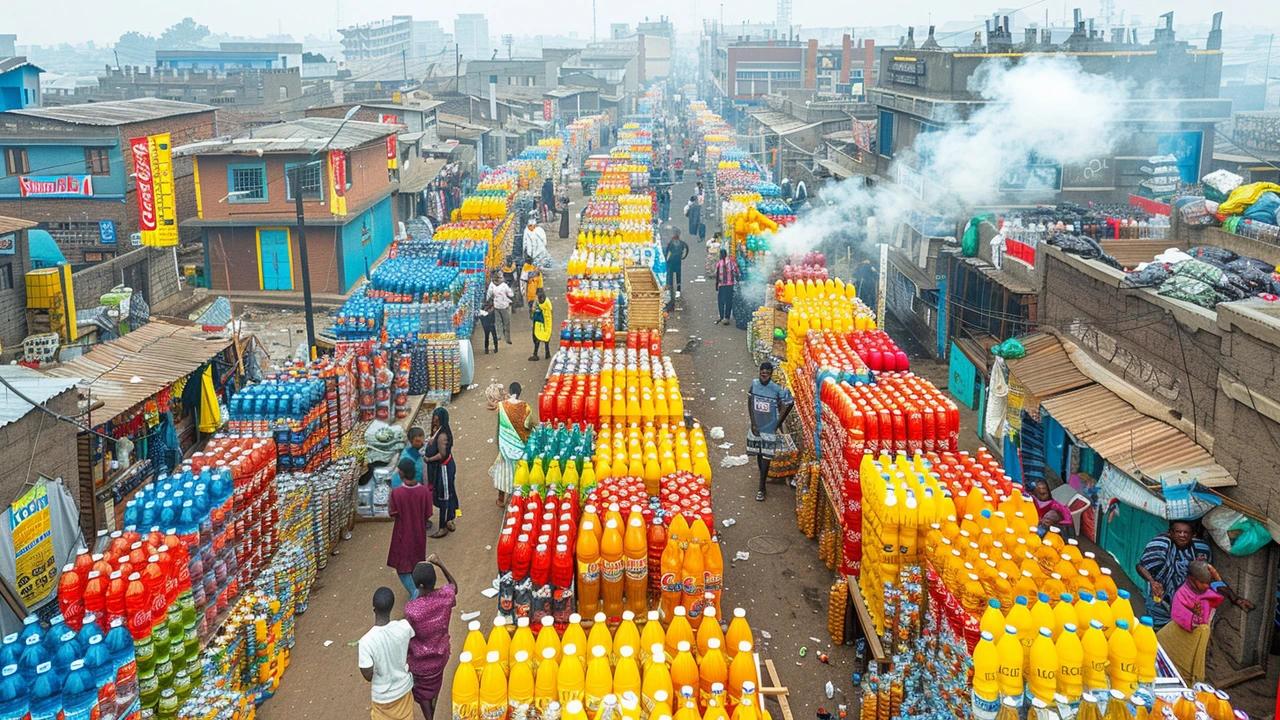
Convenience Store Availability
When it comes to buying a Coca-Cola in Ethiopia, convenience stores play a significant role. These stores, often located in urban areas, are a go-to spot for both locals and travelers looking for quick refreshments. Convenience stores in Ethiopia, particularly in the bustling city of Addis Ababa, are quite adept at stocking a variety of beverages, including Coca-Cola. This availability makes it easy to grab a cold Coke whether you're on a busy street or exploring a quieter neighborhood.
One notable aspect is that convenience stores in Ethiopia generally offer Coca-Cola in different sizes and packaging, from small cans to large plastic bottles. This variety allows for flexibility depending on your thirst level or whether you are buying in bulk for a gathering. Prices usually range from 10 to 20 Ethiopian birr for a standard 500ml bottle, which is approximately 0.20 to 0.40 USD. Given the rising costs of commodities globally, these prices are quite reasonable.
Beyond merely selling Coca-Cola, many convenience stores also offer chilled options, which is a relief in Ethiopia's warm climate. Some even have seating areas, providing a mini café experience where you can relax and enjoy your drink. According to a local store owner, "Stocking Coca-Cola is essential for any convenience store. It's by far the most popular beverage among our customers." This sentiment is echoed throughout the country, highlighting the drink's pervasive popularity.
It's also interesting to note that convenience stores in tourist-heavy areas might slightly mark up the prices compared to stores in local neighborhoods. This is a common practice due to higher rental costs in prime locations, as well as the convenience factor for tourists who might not have time to look for cheaper options. Whether you're near Bole International Airport or in the heart of Piazza, expect to see a slight variation in pricing.
Despite these minor differences, the overall availability of Coca-Cola in Ethiopian convenience stores is quite high. With their competitive pricing, different packaging options, and chilled supplies, these stores offer a reliable solution for those craving a refreshing drink. If you're traveling through Addis Ababa or any other major city, finding a convenience store selling Coke won't be a daunting task.
Factors Influencing Price
When it comes to buying Coca-Cola in Ethiopia, several key factors influence the final price you pay. Understanding these can help you make more informed purchasing decisions and maybe even save a few coins along the way.
First, let's talk about location. Prices can vary significantly between urban and rural areas. In cities like Addis Ababa, the cost of living is generally higher, which means prices for items like Coke can be a bit steeper. Conversely, in rural areas where the demand might be lower and access to goods might not be as immediate, the prices can be less consistent.
An important factor is the point of sale. If you are buying from a local shop versus a restaurant or a hotel, expect to pay different prices. Local shops often have the most affordable options, while high-end restaurants and hotels can charge a premium for the same product. This is especially true in tourist-heavy areas where prices are adjusted to meet international standards.
Packaging also plays a significant role. A 500ml bottle might cost less per ounce than a 330ml can. Bulk purchases, like a crate of glass bottles, might offer better value than buying single units. Additionally, glass bottles are often cheaper than plastic ones, partially because of the bottle return system in place in many parts of Ethiopia that incentivizes recycling.
Another factor is the supply chain. Transportation costs add to the final retail price, especially if the product has to travel long distances from the manufacturing plant to retail outlets. Ethiopia has made strides in infrastructure development, but logistical challenges can still affect prices.
Local demand can also impact the cost of a Coke. During popular events or the hot season, the demand for cold beverages spikes, sometimes leading to higher prices. Supply and demand dynamics play out in just about every market, and Ethiopia is no exception.
Currency fluctuations and economic policies are other important elements. The Ethiopian currency, Birr, can affect how much you pay for imported goods, including Coca-Cola. Inflation rates and import taxes also contribute to price variation. According to a recent report from the Ethiopian Economics Association, "currency devaluation and inflation are primary drivers for price increases in consumer goods."
"Understanding market dynamics and local economic conditions is crucial for navigating everyday expenses," says Dr. Fitsum Assefa, an economist at Addis Ababa University.
Finally, consider the effect of local competition. Some local brands produce similar beverages, which can keep Coca-Cola prices competitive. When more brands enter the market, the price of a Coke may be adjusted to maintain a competitive edge.
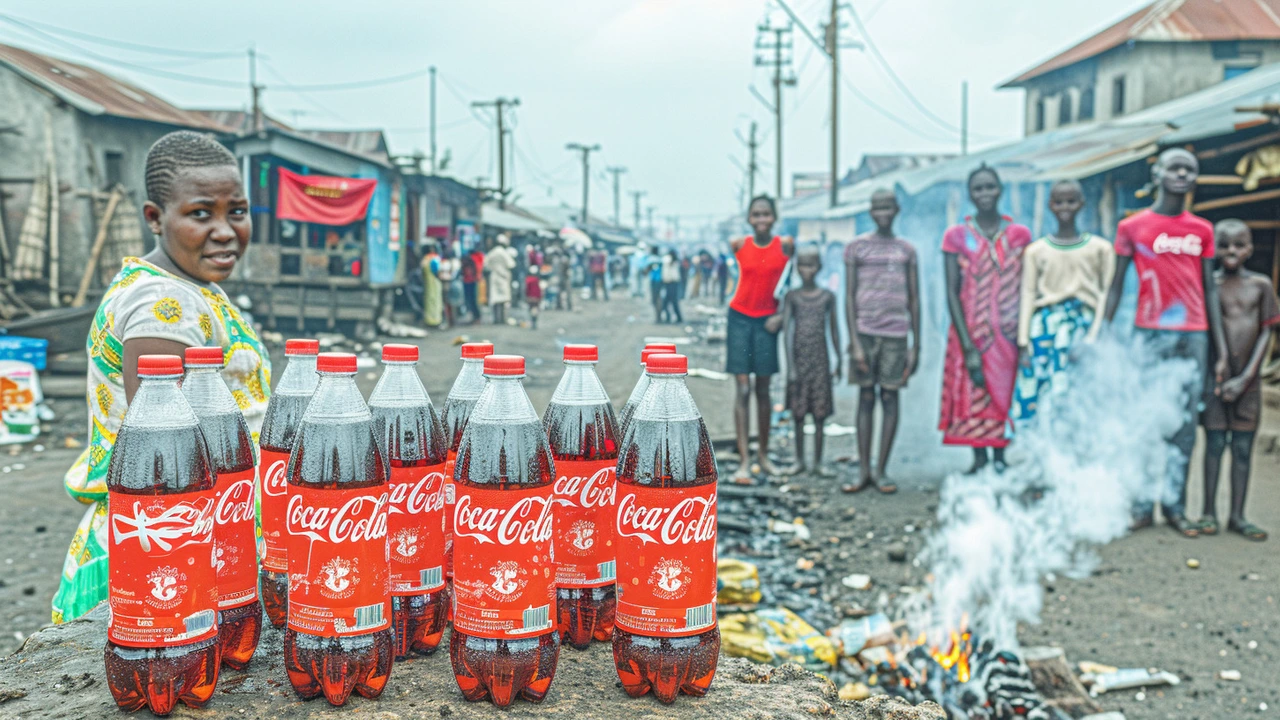
Comparison with Other Countries
When comparing the cost of a Coca-Cola in Ethiopia to other countries, interesting patterns and price variances arise. In Ethiopia, the price of a 500ml bottle of Coke typically ranges from 15 to 20 Ethiopian Birr, which translates to approximately $0.30 to $0.40 USD. This makes Coca-Cola relatively affordable in Ethiopia when contrasted with many Western countries.
For example, in the United States, a similar 500ml bottle of Coca-Cola can cost anywhere from $1.50 to $2.00 USD, depending on the location and type of store. This price difference highlights how local economic factors, purchasing power, and market regulations can influence the cost of everyday items like beverages.
European countries present their own variations. In places like Germany or France, you could spend around €1.50 to €2.00, which roughly converts to $1.60 to $2.20 USD for a 500ml bottle. These regions typically have higher living costs, which is often reflected in the elevated prices of goods and services, including soft drinks.
Even within the African continent, there's a noticeable range in prices. In South Africa, for example, a 500ml bottle of Coca-Cola could cost around 15 to 20 ZAR, which is approximately $0.85 to $1.10 USD. While this is slightly higher than in Ethiopia, it remains relatively low when compared to Western nations. Another interesting case is Nigeria, where a bottle of Coca-Cola often sells for about 100 to 150 NGN, translating to $0.25 to $0.35 USD, making it quite comparable to Ethiopian prices.
"The cost of living in different countries radically shapes the affordability of everyday products, and beverages like Coca-Cola are no exception," notes a recent report by the World Bank.
Factors such as taxation, production costs, and distribution networks contribute to the price differences across countries. In Ethiopia, local production of Coca-Cola significantly keeps costs down. The country is home to several Coca-Cola bottling plants that not only serve the local market but also export to neighboring regions. This localization helps mitigate import taxes and transportation costs, thereby reducing the retail price.
In contrast, countries that rely heavily on imports for their Coca-Cola supply often face higher prices. Import duties, logistical expenses, and international trade policies can all add to the final retail price. For instance, nations in the Middle East might see prices climbing due to tariffs and shipping costs, pushing a 500ml bottle to $1.50 USD or more.
For consumers, these price variations mean that what you pay for a bottle of Coke can be a reflection of broader economic conditions. Being aware of these factors can help travelers and expatriates better understand and navigate the cost of living in different countries. It’s fascinating to see how something as ubiquitous as Coca-Cola can act as a microcosm for larger economic systems and consumer behaviors.
Practical Tips for Buying Coke in Ethiopia
When navigating the bustling streets of Addis Ababa or any other Ethiopian city, knowing where and how to buy a Coca-Cola can enhance your experience. First and foremost, it’s essential to understand that prices can vary significantly depending on where you are. For example, a bottle from a local shop can cost you about 15 ETB (0.30 USD), while in a high-end restaurant or cafe, you might pay up to 50 ETB (about 1 USD).
To get the best deal, I recommend visiting smaller, local shops instead of tourist-heavy areas. Local shops often have more affordable prices and sometimes even discounts if you buy in bulk. Addis Ababa's Merkato, for instance, is a great place to find cheaper beverages, including Coca-Cola. Not only do you save money, but you also get to experience the vibrant local market atmosphere.
If you are dining out, steer towards mid-range restaurants where the markup on beverages isn't as high. Street vendors are another good option when you're on the go. They offer chilled Cokes at reasonable prices, typically somewhere between local shop rates and restaurant costs. It's also good practice to carry smaller currency notes since many small vendors might not have change for larger bills.
Another consideration is the packaging. Coca-Cola is available in various sizes from small glass bottles, can, plastic bottles to larger family-sized ones. Usually, buying a larger quantity can be more economical if you don’t mind sharing or saving for later. Addition to in-store options, several supermarkets and convenience stores offer promotions or deals that could save you some money if you buy multiple bottles or cans.
Keen observer should note that prices can also be occasionally influenced by regional availability and the distance from central distribution hubs. In more remote areas, the cost may naturally be higher due to transportation expenses. Knowing this can help you plan your purchases effectively if you’re travelling outside major cities. Additionally, being aware of local events or holidays is useful. Prices can sometimes spike during festivities or national holidays when demand is high.
One must not overlook safety and hygiene. Always ensure that the seal on your Coca-Cola bottle or can is intact. Unfortunately, counterfeit products can sometimes make their way into markets, and consuming such items can pose health risks.
Elias from Addis Mercato says, "Buying beverages in larger quantities from trusted vendors ensures not just savings but also safety. Stretch your budget by exploring local markets and avoiding tourist trap zones."
Lastly, it’s always a wise move to familiarize yourself with a bit of Amharic, the local language. This not only endears you to local vendors but could also score you a friendly discount or a better deal. A simple ‘Tenayistilign’ (hello) or ‘Amaseganallo’ (thank you) can go a long way.
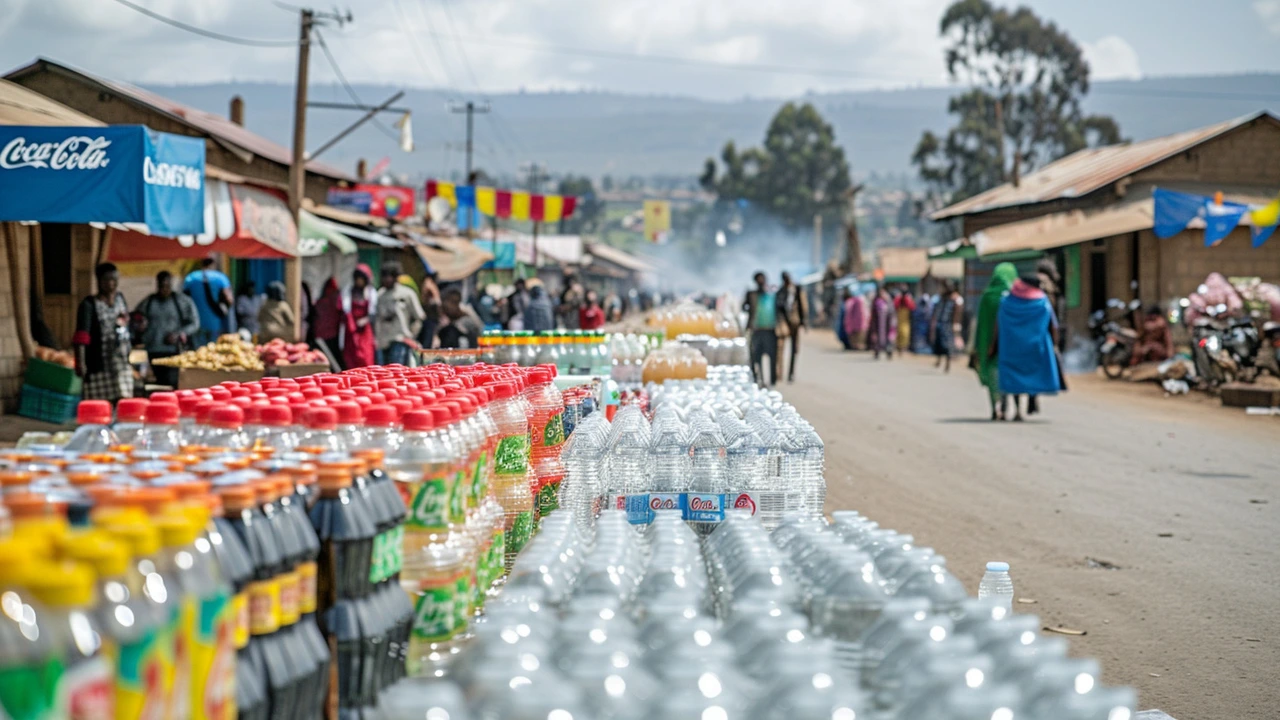
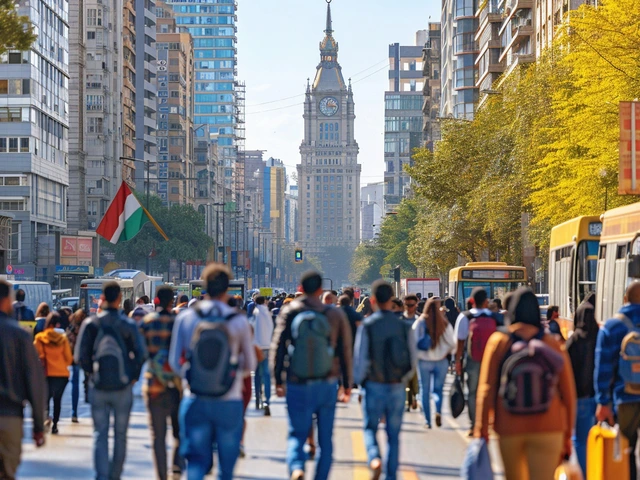 Understanding Taxation in Ethiopia: Do Ethiopians Pay Taxes?
Understanding Taxation in Ethiopia: Do Ethiopians Pay Taxes?
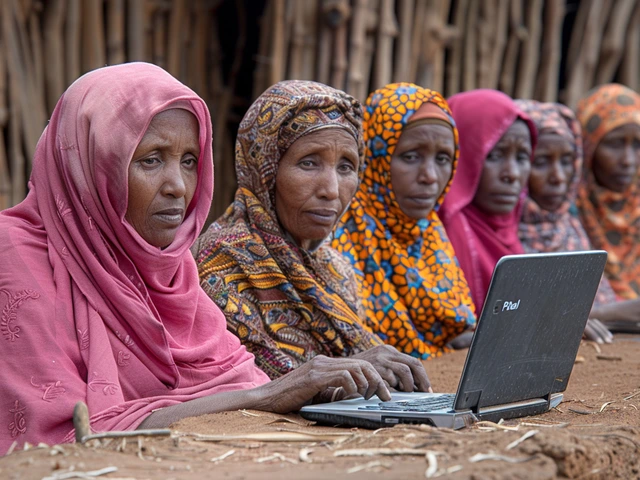 Navigating PayPal Banking Integration in Ethiopia: A Comprehensive Guide
Navigating PayPal Banking Integration in Ethiopia: A Comprehensive Guide
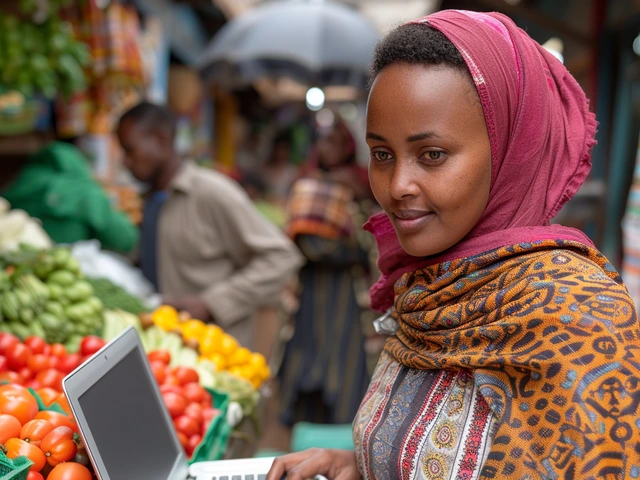 Exploring Ethiopia's Booming Industries: Key Sectors Driving Growth
Exploring Ethiopia's Booming Industries: Key Sectors Driving Growth
 Understanding the Average Wage in Ethiopia in 2024
Understanding the Average Wage in Ethiopia in 2024
 Ethiopia's Challenges: Unveiling the Nation's Weaknesses
Ethiopia's Challenges: Unveiling the Nation's Weaknesses
Joel Watson
June 13, 2024 AT 17:36The pricing structure of Coca‑Cola in Ethiopia illustrates a micro‑economic model where distribution costs, local purchasing power, and market segmentation intertwine. Local shops typically offer the 500 ml bottle at roughly 20 birr, which aligns with the average urban wage and maintains consumer accessibility. In contrast, establishments targeting expatriates or tourists impose a premium of up to 70 birr, reflecting both the added service value and the willingness of certain clientele to pay for ambience. This disparity is not merely a function of location but also a deliberate pricing strategy employed by retailers to maximize revenue streams across socioeconomic strata. Moreover, the presence of a returnable glass bottle system introduces a recycling incentive that subtly reduces the effective price for environmentally conscious consumers. Seasonal promotions during festivals such as Meskel or Timkat further modulate prices, offering temporary discounts that stimulate demand. When analyzing the supply chain, one must acknowledge that Ethiopia’s domestic bottling facilities mitigate import tariffs, thereby sustaining lower wholesale costs. However, logistical challenges in remote regions inevitably raise transportation expenses, which are subsequently transferred to the end‑user. Currency fluctuations of the Ethiopian birr also play a non‑trivial role, as devaluation can inflate import‑related components of the product’s cost. The interplay between these variables creates a price elasticity that is highly sensitive to both macro‑economic shifts and localized consumer behavior. It is worth noting that the price gap between a 330 ml can and a 500 ml bottle is proportionate, yet the per‑millilitre cost often favours larger packaging, encouraging bulk purchases. This aligns with global consumer trends where volume discounts drive higher sales volume. From a policy perspective, the government’s taxation framework on sugary drinks influences retail pricing, albeit modestly compared to supply chain determinants. The competitive presence of local soft‑drink alternatives exerts downward pressure on Coca‑Cola’s market price, ensuring it remains within an affordable range for the majority. In summary, the Ethiopian Coca‑Cola market encapsulates a nuanced equilibrium between affordability, profit maximization, and cultural practices, offering a revealing case study for emerging economies.
Chirag P
July 3, 2024 AT 11:46It's fascinating to see how the local customs shape the buying experience. In many Ethiopian neighborhoods, the shopkeeper greets you with a warm "Selam" and may even offer a small taste of the beverage before you decide. This personal touch not only builds trust but also reinforces community ties, which is a hallmark of Ethiopian culture. When you purchase a glass bottle, remember that the return system is not just about recycling; it's a social practice that encourages repeated interaction between vendor and customer. During festivals, vendors often display colorful decorations and may briefly lower prices to attract the celebratory crowd. Such gestures reflect a collective spirit that values sharing and generosity.
RUBEN INGA NUÑEZ
July 20, 2024 AT 20:26For anyone planning to stock up on Coke, consider buying the larger family‑size bottles from a reputable supermarket. They usually cost less per millilitre and the sealed packaging guarantees authenticity, which can be a concern in some markets. If you’re on a tight budget, checking the expiry dates can also help you find discounted stock without compromising safety. Also, keep an eye out for bulk promotions-many shops offer a "buy three, get one free" deal that can stretch your birr further.
Michelle Warren
August 7, 2024 AT 05:06Honestly the Coke price is sooo cheap here.
Christopher Boles
August 24, 2024 AT 13:46Great info! If you’re traveling, grab a Coke from a local shop instead of a tourist spot – you’ll save money and get a taste of everyday life. Stay positive and enjoy the experience.
Crystal Novotny
September 10, 2024 AT 22:26One could argue that a simple soda reflects the complexities of global capitalism yet it remains a refreshing escape from philosophical burdens.
Reagan Traphagen
September 28, 2024 AT 07:06Be wary of the corporate agenda behind every bottle. Coca‑Cola isn’t just a drink; it’s a tool for cultural domination, funded by hidden tax breaks and secret lobbying. Every sip supports a system that prioritizes profit over public health, and the pricing tricks in Ethiopia are just a micro‑cosm of this manipulation. The fact that prices jump in tourist zones shows deliberate price‑gouging designed to extract wealth from visitors. Stay informed, resist the soft‑drink propaganda, and look for local alternatives.
mark sweeney
October 15, 2024 AT 15:46Sure, blame the soda for everything but forget that local vendors also need to make a living. Not every price hike is a grand conspiracy – sometimes it’s just supply costs and honest business.
randy mcgrath
October 27, 2024 AT 04:33Considering the price of a Coke can lead us to ponder how value is assigned in society. Is a cheap drink truly cheap, or does it carry hidden costs that we overlook? Reflecting on these questions helps us become more mindful consumers.